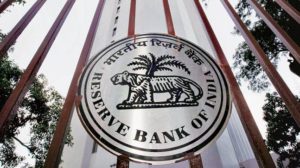 The Reserve Bank of India has imposed penalties on four state-run lenders for violating Know Your Customer norms and anti-money laundering standards. Punjab National Bank, Allahabad Bank, and UCO Bank were fined Rs 50 lakh each while Corporation Bank was fined Rs 25 lakh. The Reserve Bank of India has imposed penalties on four state-run lenders for violating Know Your Customer norms and anti-money laundering standards. Punjab National Bank, Allahabad Bank, and UCO Bank were fined Rs 50 lakh each while Corporation Bank was fined Rs 25 lakh. |
| Source: The Money Control |
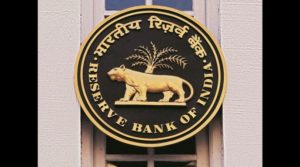 As per Second Bi-monthly Monetary Policy Statement for 2019-20, the Reserve Bank of India will stop imposing additional charges on Fund transfer through RTGSand NEFT systems from 1st July, 2019. This has been done to provide an impetus to digital funds movement. As per Second Bi-monthly Monetary Policy Statement for 2019-20, the Reserve Bank of India will stop imposing additional charges on Fund transfer through RTGSand NEFT systems from 1st July, 2019. This has been done to provide an impetus to digital funds movement. |
| Source: The Business Today |
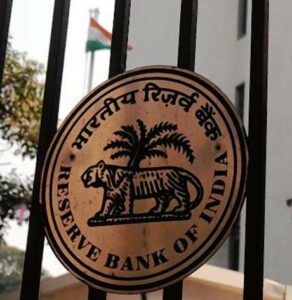 The Reserve Bank relaxed the leverage ratio (LR) to 4% for Domestic Systemically Important Banks (DSIBs) and 3.5% for other banks. This has been done to help them boost their lending activities. The reduced leverage ratio will be effective from the quarter commencing October 1, 2019. The leverage ratio, as defined under Basel-III norms, is Tier-I capital as a percentage of the bank’s exposures. The Reserve Bank relaxed the leverage ratio (LR) to 4% for Domestic Systemically Important Banks (DSIBs) and 3.5% for other banks. This has been done to help them boost their lending activities. The reduced leverage ratio will be effective from the quarter commencing October 1, 2019. The leverage ratio, as defined under Basel-III norms, is Tier-I capital as a percentage of the bank’s exposures. |
| Source: The Business Standard |
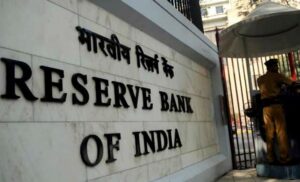 The Complaint Management System (CMS) is a software application launched by Reserve Bank of India on its website. It will be used for lodging complaints against banks and NBFCs with a view to improve customer experience in timely redressal of grievances. Customers can lodge complaints against any regulated entity on the platform. These complaints will be directed to the appropriate office of the Ombudsman/Regional Office of the RBI. The RBI is also planning to introduce a dedicated Interactive Voice Response (IVR)system to track the status of complaints. The Complaint Management System (CMS) is a software application launched by Reserve Bank of India on its website. It will be used for lodging complaints against banks and NBFCs with a view to improve customer experience in timely redressal of grievances. Customers can lodge complaints against any regulated entity on the platform. These complaints will be directed to the appropriate office of the Ombudsman/Regional Office of the RBI. The RBI is also planning to introduce a dedicated Interactive Voice Response (IVR)system to track the status of complaints. |
| Source: The Economic times |
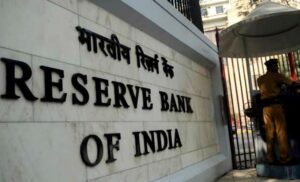 The Reserve Bank of India has advised all Scheduled Commercial Banks to adopt Education Loan Scheme, formulated by Indian Banks Association. The Reserve Bank of India has advised all Scheduled Commercial Banks to adopt Education Loan Scheme, formulated by Indian Banks Association. |
Salient features of the Scheme includes:
|
| Source: The Press Information Bureau |
 Reserve Bank of India’s (RBI) Deputy Governor Viral Acharya has quit six months before the scheduled end of his term. He had joined RBI on January 23, 2017. Viral Acharya was in charge of the Financial Stability Unit, Monetary Policy Department, Department of Economic and Policy Research, Financial Markets Operation Department, Financial Market Regulation Department, among others at the RBI. Reserve Bank of India’s (RBI) Deputy Governor Viral Acharya has quit six months before the scheduled end of his term. He had joined RBI on January 23, 2017. Viral Acharya was in charge of the Financial Stability Unit, Monetary Policy Department, Department of Economic and Policy Research, Financial Markets Operation Department, Financial Market Regulation Department, among others at the RBI. |
| Source: The Moneycontrol |
 Competition Commission of India (CCI) has approved the merger of the Indiabulls Housing Finance and Lakshmi Vilas Bank. Lakshmi Vilas Bank is going to merge with Indiabulls Housing Finance in a share swap deal with intent to create a combined entity with a larger capital base and wider geographical reach. After the merger, Indiabulls Housing Finance will get access to low cost deposits, geographical diversification and expanded client base and cross selling opportunities. Competition Commission of India (CCI) has approved the merger of the Indiabulls Housing Finance and Lakshmi Vilas Bank. Lakshmi Vilas Bank is going to merge with Indiabulls Housing Finance in a share swap deal with intent to create a combined entity with a larger capital base and wider geographical reach. After the merger, Indiabulls Housing Finance will get access to low cost deposits, geographical diversification and expanded client base and cross selling opportunities. |
| Source: The Live Mint |
 From July 1, Canara Bank customers can deposit cash of up to Rs 50,000 for free only thrice a month. From the fourth transaction or for cash deposits of over Rs 50,000, there will be a service charge of Rs 1 per thousand, with a minimum of Rs 50 and a maximum of Rs 5,000 plus GST. From July 1, Canara Bank customers can deposit cash of up to Rs 50,000 for free only thrice a month. From the fourth transaction or for cash deposits of over Rs 50,000, there will be a service charge of Rs 1 per thousand, with a minimum of Rs 50 and a maximum of Rs 5,000 plus GST. |
| Source: The Hindu |
 Reserve Bank fined country’s largest private sector lender HDFC Bank Rs 1 crore for not reporting frauds and non-compliance with other directions. The fine pertains to submission of forged bill of entries (BoEs) by certain importers to HDFC Bank for remittance of foreign currency. Reserve Bank fined country’s largest private sector lender HDFC Bank Rs 1 crore for not reporting frauds and non-compliance with other directions. The fine pertains to submission of forged bill of entries (BoEs) by certain importers to HDFC Bank for remittance of foreign currency. |
| Source: The Economic times |
 The Jammu and Kashmir Bank will now come under the purview of Right to Information Act and Central Vigilance Commission (CVC) guidelines as per the decisions taken by the Board of Directors of the Jammu and Kashmir Bank to ensure greater transparency and accountability. The Jammu and Kashmir Bank will now come under the purview of Right to Information Act and Central Vigilance Commission (CVC) guidelines as per the decisions taken by the Board of Directors of the Jammu and Kashmir Bank to ensure greater transparency and accountability. |
| Source: Financial Express |
You need to login to perform this action.
You will be redirected in
3 sec
